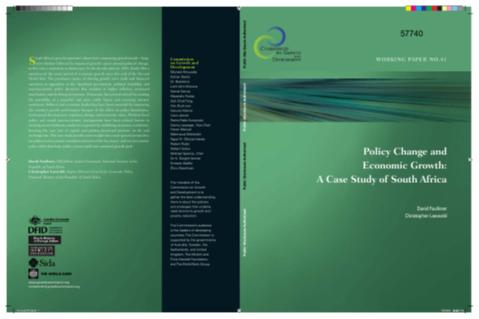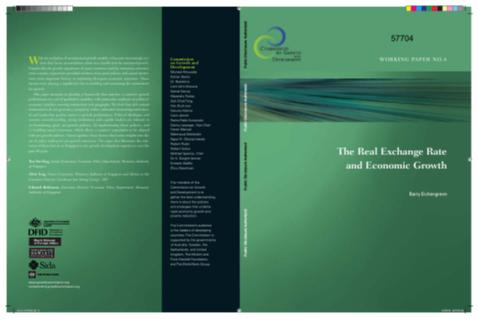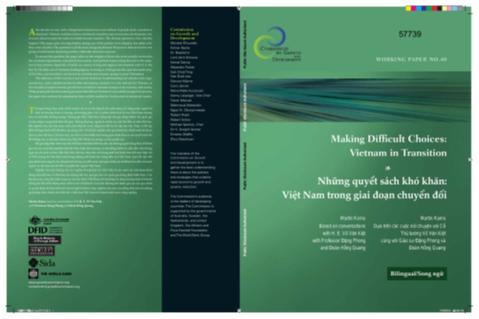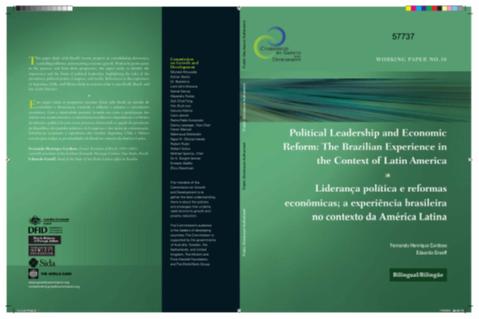From Agrarian Reform to Ethnodevelopment in the Highlands of Ecuador
Through an examination of interventions in the agrarian structures and rural society of the Ecuadorian Andes over the past 40 years, this article explores the gradual imposition of a particular line of action that separates rural development from the unresolved question of the concentration of land ownership and wealth among the very few. This imposition has been the consequence, it is argued, of the new development paradigms implemented in Andean peasant communities since the end of land reform in the 1970s.
'My land, your social transformation': Conflicts within the landless people movement (MST), Rio de Janeiro, Brazil
The Brazilian Movimento dos Trabalhadores Rurais Sem-Terra (MST) is one of the best-known and most prominent rural social movements. The unequal distribution of land in Brazil, and the neglect of this problem by successive Brazilian governments contributed greatly to the organisation of rural movements striving for the implementation of land reform in the country. The struggle for land therefore frames the MST collective action and legitimates its raison d'être as a social movement.
Probability of implementation of administrative-territorial reform before local government election in 2009: situation in Jelgava district
In the administrative territories with small number of population, deficiency of infrastructure and resources for municipalities’ function can be observed. According to this, already in the 90ties, reform of local governments was initiated in Latvia. The cabinet, basing on principles of local governments in European Charter (1985), accepted conception of the reform. The Law 'On Administrative-Territorial Division Project of local governments' was carried in 2006 but rules on administrative division of local governments were issued in 2008.
Policy Change and Economic Growth
South Africa's growth experience provides an example of how contrasting growth trends long-term decline followed by improved growth pivot around political change, in this case a transition to democracy. In the decade prior to 1994, South Africa experienced the worst period of economic growth since the end of the Second World War, with growth variable and declining.
The Real Exchange Rate and Economic Growth
The real exchange rate was not at the center of the first generation of neoclassical growth models, nor was it prominent among the policy prescriptions that flowed from those models. Recent analyses, in contrast, have paid it more attention. This paper analyzes the role of the real exchange rate in the growth process, the channels through which the real exchange rate influences other variables, and policies useful (and not useful) for governing the real rate. An appendix provides econometric evidence supportive of the emphases in the text.
Making Difficult Choices
After decades of war, with a dilapidated infrastructure and millions of people dead, wounded or displaced, Vietnam could have been considered a hopeless case in economic development. Yet, it is now about to enter the ranks of middle-income countries. The obvious question is: How did this happen? This paper goes one step further, asking not which policies were adopted, but rather why they were adopted. This question is all the more intriguing because the process did not involve one group of individuals displacing another within the structure of power.
Political Leadership and Economic Reform
Brazil grew 2.4 percent per year on average in the last 25 years-somewhat less than Latin America, a good deal less than the world, far less than the emerging countries of Asia in the same period, and indeed far less than Brazil itself in previous decades. If anything stands out favorably in recent Brazilian experience, it is not growth but stabilization and the successful opening of the economy. The purpose of this paper is more modest.
Land Titling and Rural Transition in Vietnam
We examine the impact of the 1993 Land Law of Vietnam, which gave households the power to exchange, transfer, lease, inherit, and mortgage their land-use rights. We use household surveys before and after the law was passed, together with the considerable variation across provinces in the speed of implementation of the reform, to identify the impact of the law. We find that the additional land rights led to statistically significant increases in the share of total area devoted to long-term crops and in labor devoted to nonfarm activities.
Land in Transition: Reform and Poverty in Rural Vietnam
BACK COVER: This book is a case study of Vietnam’s efforts to fight poverty using market-oriented land reforms. In the 1980s and 1990s, the country undertook major institutional reforms, and an impressive reduction in poverty followed. But what role did the reforms play? Did the efficiency gains from reform come at a cost to equity? Were there both winners and losers? Was rising rural landlessness in the wake of reforms a sign of success or failure?
Uneven Development: Nature, Capital and the Production of Space
WEBSITE INTRODUCTION: In Uneven Development, a classic in its field, Neil Smith offers the first full theory of uneven geographical development, entwining theories of space and nature with a critique of capitalist development. Featuring pathbreaking analyses of the production of nature and the politics of scale, Smith's work anticipated many of the uneven contours that now mark neoliberal globalization. This third edition features an afterword updating the analysis for the present day.
Compulsory acquisition of land and compensation
Countries retain powers of compulsory acquisition in order to enable governments to acquire land for specific purposes. The nature of these powers and the ways in which they are used are invariably sensitive and have wide implications, including from the perspective of international agreements on human rights and their national expressions. Compulsory acquisition is disruptive for those who are affected and whose land is taken and, if done poorly, will have serious negative impacts on people and their livelihoods.







